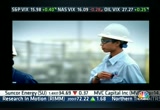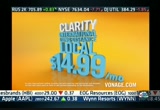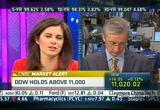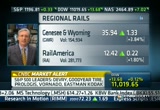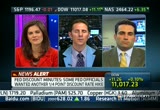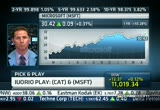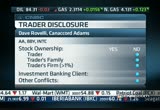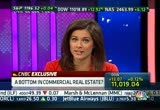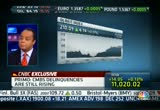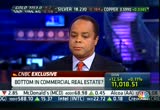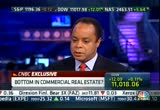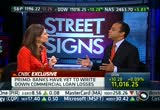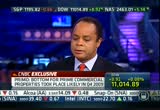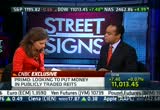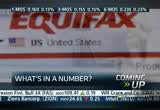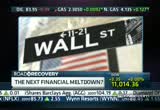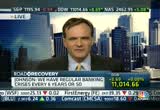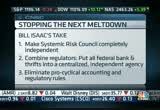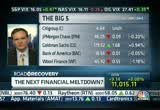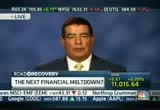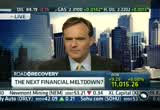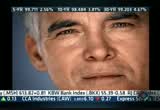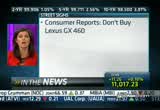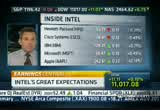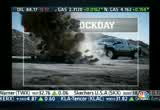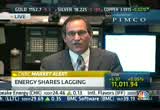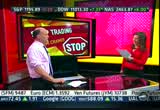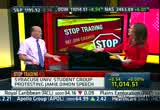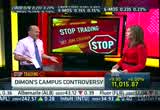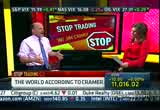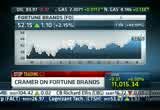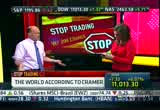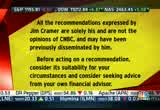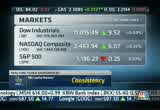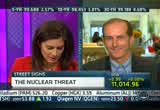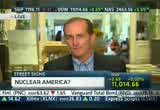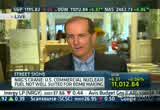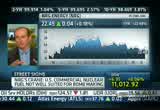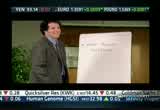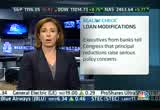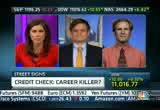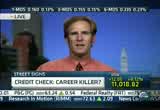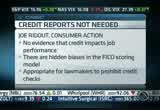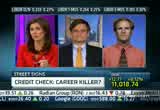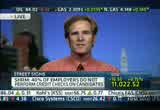tv Street Signs CNBC April 13, 2010 2:00pm-3:00pm EDT
2:00 pm
2:01 pm
pamela anderson is famous for one set of assets that were on display at "bay watch" when she was a big star there. >> she looks different there. looks like she's had some work done. >> it is amazings. she's parentally owes $493,000 in back taxes. she's among 250 individuals and businesses that owe more than $100,000 in back taxes. maybe that's why's on "dancing
2:02 pm
with the stars." if she wins money there maybe she can actually pay her taxes. >> she looks good. >> that does it for us. we'll see you tomorrow. "street signs" with erin burnett is now. 2:00 on wall street. the dow is -- yes -- just have to check -- back above 11,000. what happened to that other shoe? we'll talk to a real estate tycoon who says fierce aears an loathing about commercial real estate is over. and another report says credit scores have no effect on employees. i'm erin burnett. we begin with the markets. the reason i had to check to see where the dow was because we were above 11,000, at 11,000, and below. all of this during today's
2:03 pm
trading session. right now at least for the time being, solidly above. let's get to the trading floors. bob pisani at the big board. bob, volume trends worth noting, too. >> we've had some pick-up in volume but it is because of some of these ambax, half a million shares today, playing around since their earnings came out thursday. fannie and freddie. every few months you get these pick-ups because traders trade on momentum. they get a little bit of a move up and all of a sudden everybody piles in. on a more fundamental level is what's going on in earnings. forget about alcoa, it is transports and financials. we've had great moves up. csx will be after the bell here. problems is we'll hear good things. but the stocks went up 25% in two months. all the big transports have run up because some of the little transport names have had positive things to say. there are small carriers out there, regional rail carriers out there.
2:04 pm
genesee, wyoming. regional runs in ohio and pen, steel shipments and things like that. they had positive carload shipments in march. this is the kind of stuff the street looks for. railamerica did as well. we haven't seen that in a long, long time. that's one of the reasons the street has been long transports. finally on the banks, all of them have had nice runs up recently because we are hoping to hear positive comments from them overall about loan loss provisions. i'm not so sure we'll hear that from them. now let's play a special version of "pick and play." as the dow flirts with the all-important 11,000 level, how are our traders playing that headline and one other we have carefully selected. joining us, jim orio, the first headline, for now we are above dow 11,000. let's see if we can hold it. maybe if we say we can, we really can. it is all in psychology.
2:05 pm
jimmy, how do you play dow 11k? >> well, erin -- we keep talking about it. i think there is a pool of money out there. everyone who comes on the show talks about how low volume this rally has been. imagine if we start to pull the less sophisticated volume back, the mom and pop kind of ventures. many analysts will tell that you signifies the top. no, it is a process that signifies the beginning of the top but that could take some time. where does that money go when it comes into the market? usually the knee-jerk is to go in to the bigger kind of iconic american names and stuff that's recently outperformed. i'm looking at cat and microsoft. cat has been on a tear the last couple weeks and with those numbers, trade numbers that came out today, the fact we export a little bit more -- >> even at 46 times earnings? >> remember, it's just
2:06 pm
perception. reality doesn't come into this play. when we talk about less sophisticated money, it will run where it is going to run regardless of the facts. >> dave, what's your take on dow 11k? >> today's news is going to be intel. i'm going to buy intel and sell alcoa. intel had their new platform system out called capella. we think shipping ahead of most people's estimates and think they'll raise estimates on capella shipments in the second quarter. also seeing an upgrade in china and upgrade in north american corporate -- they're going to be upgrading corporate pcs in north america. those three reasons are why i would buy intel ahead of earnings tonight. >> that is a day of trade. let's get to the trade deficit numbers. dave, what's your view on that? obviously the headline is trade deficit was wider than expected. too bad uncle sam yet again. >> good and bad news under this. good news is we are exporting more. the bad news is we're importeding a lot more than we're exporting. obviously there goes the trade
2:07 pm
deficit. if you read the bulletin put out by the america, said most of our sales are coming from overseas, what americans consumers are buying, computers and televisions. what we like is best buy. we don't cover the stock but our checks are showing us best buy is track ahead of the quarter. where can you get a tv? obviously best buy. >> that's your trade on the trade deficit. what's your one buy, jimmy, before we go? >> my best buy would be gold. i think the fact the dollar strengthened off of this as a knee-jerk reaction was great but the government won't raise numbers until the employment picture has sustainable growth. i think as the dollar sochbs up a little bit, i know it is tough to try to buy gold when it is falling down in your face, but i think it is time to buy more gold. >> courageous calls. we'll see how they fare. now let's talk about the recovery. because when it comes to the recovery, it comes down to real
2:08 pm
estate and perhaps this part of real estate. commercial real estate. many say it could be the ticking time bomb that keepts economy from ever fully recovering, it is the next shoe to drop. now one of the biggest commercial real estate investors in the country says maybe all that talk of a shoe dropping is dead wrong. chairman and ceo, quintin primo, a man who knows where to put his money. commercial real estate in the united states. next shoe to drop or do people have it dead wrong? >> well, in november of last year i made a bold prediction that we probably would see the bottom in real estate prices some time in the first half of 2010, maybe the second half. we're much more optimistic, much more bullish. we called the bottom basically in the second half of 2009. the reason that we believe that the commercial real estate market is looking a bit more vibrant than we thought last year when we were in the doldrums is, one, general
2:09 pm
economy seems to be lifting quite nicely. the likelihood of a double-dip recession seems a bit remote. and alan greenspan just got on easter sunday tv and announced to the world that in his belief, a double-dip recession is indeed remote. as unemployment is bottoming, i believe, we believe that job growth as evidence will continue to escalate. that's excellent for job growth, family housing, office and retail. thirdly, you're seeing credit spreads tighten significantly in the credit markets. cnbs spreads the last 2 1/2 months, heightened by 160 basis points so the credit markets are re-awakening. lastly, there is a wall of cash that still needs yield. it's seeking -- it's making 25 basis points in libor, less than
2:10 pm
1%. it's missed the stock rally. it's missed the bond rally. missed commodities. so real estate continues to be one of the underpriced assets in the market and it's coming off the sidelines and investing. spl so when you talk about the other big question people have, maybe i'll buy double dip, i get you on things are getting better, but here's my issue. we have $1.5 trillion in real estate borrowing that has to be refinanced over the next couple of years. >> $1.2 billion, $1.4 billion. >> who wants to quibble about $100 million? so are you confident all that's going to get done and even in that environment that you can still as a regular person make a return? >> there's still headwinds, clearly, that will perhaps buffer the rise in prices. certainly we don't expect the economy to quickly rise. consumer balance sheets are still in disrepair.
2:11 pm
the fiscal budgets of the united states government, of the states, the cities, have great financial issues that they're dealing with which will be a headwind. tax policy is going to rear its ugly head and be averse to market growth. >> even with all this, you still feel that the bottom -- >> pretty much so. consider, too, that there's been no construction. construction in the industry has remained dormant. so any investment in the markets that's forward-looking realizes that with no construction occurring in the market, and no construction on the near who are done, that within the next three years, it's natural to assume that rental rates will rise, that as job growth returns occupancies will increase and that you'll have much more higher prices three to five years from now. >> where are you and capri putting that bet? you mentioned retail, you mentioned office. there's different categories and also different geographies? >> if i told you, all my competitors would know. no, no, no.
2:12 pm
we are still bullish on multi-family. multi-family over the last 30 years has offered investors the highest risk adjusted returns. >> so this is residential real estate. more than one family in a home. >> yes. greater than four units. indeed. >> now i want to ask you a question on that. >> by the way, we also like debt. with the market gone, banks really not lending, we think that's a wonderful place to be invested right now. >> i want to follow up on that first your point on multi-family. an economist from goldman sachs was on the show the other day, making the case for the biggest reap bound in american residential housing since 1946 and he was talking about construction for multi-family. i'm looking for his exact number here but i think something you would see a surge three to four times in terms of the construction levels in multi-family. sounds like you are one of the people out there who say, look, that's not necessarily a crazy projection. >> it's not. it is very provocative.
2:13 pm
his basic tenant is that there's -- in deep dips like this in the housing markets, housing recessions, as adult population continues to grow, there is pent-up demand. household formations are down. when adults begin to reform households and come back to the market, that if you're gone down significantly you pop up significantly. again, i think the damper on that is that the consumer balance sheets are still in a mess. the banks are not lending. and this is particularly exacerbated within the minority communities across the country that haven't even begun to get into the mainstream recovery on the economy. that's something that is very worrisome and if we don't get these groups of individuals, latinos, african-americans, et cetera, into the mainstream economy, that will be a drag on -- >> in the future. >> indeed.
2:14 pm
>> i will correct myself, multi-family home his prediction was a tripling of construction. finally, one great idea you can share in terms of distress debt investing. >> well, the fdic is unloading -- forcing banks to unload a bad asset and we're dealing with a market that has been dominated by major firms. we think that that's an excellent opportunity for investment. >> well thank you very much. quintin primo, appreciate seeing you us a always. next on the show, predicting the next potential meltdown -- who, when and what will cause it? that's coming up next. we'll talk to the former chief economist at the imf, simon johnson. plus, why many major corporations run credit checks
2:15 pm
2:17 pm
2:18 pm
critics of the dodd bill and the senate and the house bill aimed at overhauling the nation's financial reform system say current legislation makes a financial meltdown inevitable or does nothing to prevent the next one. so when will the next melt down be and what will be the determining factors? we appreciate you being with us, bill and simon. simon johnson, have you been a passionate and vocal advocate of breaking up the biggest banks in this country. we have seen more failures among smaller banks in this country though during this crisis than we did among big ones. does that make you pause at all or not? >> not at all. the big ones are too big to fail, erin. they were saved. they all basically were on the verge of collapse in september 2008 and they were saved by the government because the consequence of that were far too scary.
2:19 pm
they're too big to fail. you won't let them fail. >> bill isaac, what's your response to that point and also to the point rob kaplan says it wasn't about how big the institutions were, it was about how interconnected they were in an absolute basis aig financial services was relatively small. it was the fact that its tentacles were in so many banks that was the problem. >> i believe that the legislation currently in front of the congress is not going to fix too big to fail. we have roughly five banks that control over 50% of the financial assets in the country. there is no way the government can allow those banks to go down without destroying the economy. so i would agree with the basic premise that as long as we have that much concentration in our financial system, too big to fail will always be with us and we need to do something to address that issue.
quote
2:20 pm
neither the house bill nor the senate bill does anything to seriously address that issue. >> simon, can you give an example of an institution that is the right size in america? if we had to say simon wants to break up banks and have them be no bigger
2:21 pm
all work together. our banking system used to work just fine 10 or 15 years ago when these mega banks were much smaller. goldman sachs is about $270 billion in today's money. when it almost failed in 2008,
2:22 pm
banks. in the past we've always required the smaller banks to have somewhere in the neighborhood of 8% equity capital to the total assets. while the largest banks were allowed to go down to 3%. that's one reason why the largest banks are so much lanker, they really haven't had to maintain the capital that the smaller barks have. so we need fair rules that apply across the board to all banks. >> but you think 20% would shut down the economy. >> no, we have a problem right now banks are not lending because they don't have enough capital. if we raise those requirements too high, too fast, we'll really be in the soup for a long time on this economy. >> simon, he says you'll destroy the economy. >> i completely disagree. i was in europe this weekend talking to some top people in the uk, for example. there they think that the only solution they can pursue is much higher capital requirement, as high as 20%, 25%. it is the process around the bond world committee will end up with 10% and 12% capital, that's
2:23 pm
the same amount of capital lehman brothers had the day before it failed. >> their issue was liquidity, rick. >> their issue was capital and liquidity, it turned out. of course liquidity is a very important issue as well. but capital as the shareholder's buffer against losses is critical. before 1935, before 1913, before this bail-out regime, we bailed out banks with 20%, 30% capital. we can do it again in comparison to these other approaches that are currently on the table. >> to be continued. thank you very much. we do know it will be continued. coming up, an inside look at intel. and another blow to toyota. another warning -- don't buy this car. we'll be right back. boss: y'know, geico opened its doors back in 1936
2:24 pm
2:25 pm
but we're also in the showing-kids- new-worlds business. and the startup-capital- for-barbers business. and the this-won't- hurt-a-bit business. because we don't just work here. we live here. these are our families. and our neighbors. and by changing lives we're in more than the energy business we're in the human energy business. chevron.
2:27 pm
the news. "consumer reports" told us this morning that they advise car buyers avoid the 2010 lexus gx-460 suv. they told us this is due to risk of rollover especially when making a quick turn at a high speed. the example they gave us was avoiding a piece of tire on an open highway. toyota says it is concerned with these findings and will conduct its own tests to try to duplicate the problem but as of now toyota responds the vehicle has passed all federally mandated safety tests. federal officials discuss a second discount rate hike at a mid-march discount rate meeting. this is according to the just-released minutes of that meeting. the fed raised the discount rate 25 basis points to .75% on february 18th in a surprise move, but officials ultimately decided that rate was appropriate. it is still shy of 1%. yet another apple product unveiling, this time versions of the mac book pro computer line. apple says these updates have better battery life and operate up to 50% faster than their
2:28 pm
predecessors. speaking of tech, less than two hours until the kickoff of tech earnings season. name everyone's talking about, intel. what will they say today? jim goldman is our silicon valley bureau chief and he has the latest. >> erin, good afternoon. there is a thought on wall street right now that intel might be the kind of sweet spot as far as earnings are concerned. shares are in a narrow range today but they've been on the climb recently, certainly over the past few weeks, thanks in large measure now to accelerating optimism and nice increases in earnings estimates and price targets. this time around the street's looking for 38 cents on $9.82 billion in revenue. analysts are also anticipating 61.4% in gross margins. guidance for the second quarter should be about $9.68 billion in revenue, and gross margins of about 60.4%. intel might be tech's top bellwether right now. its numbers will give us a glimpse into consumer spending, a glimpse into enterprise spending, a blims into chip
2:29 pm
equipment companies and with applied materials raising its own guidance just a couple of weeks ago, there is every indication now with netbooks, pcs, servers and the upgrades cycles all going very well, intel's report tonight should be very strong. action after hours will come down to the company's guidance. if it turns out that was just the beginning of new momentum at 12 times next year's earnings, intel might still have some room to run. >> thank you very much, jim goldman. everyone is awaiting those numbers. next, jim cramer will talk about that. plus, jamie diamond. what did he do to su? we'll be back. welcome back
2:32 pm
2:33 pm
if you look at one-month chart of the euro versus dollar or one-month chart of the pound versus the dollar, you can see that a lot of the down drafts have given way to stabilization. this isn't lost on the dollar index which has had a couple of days of virtually sideways. maybe now as it sits right around 80.5, down from its highest levels slightly above 82 several weeks ago, maybe this is as good as it gets for the dollar. for interest rates, whatever the reason may be, it has backed away from 4%. no surprise for two weeks on the treasury coupon curve. back to you, erin. sorry i'm yelling -- but jim is very far away! how are you? >> excuse me? >> we have a new set. we're working out some kinks but right now you're many miles away. you ready to play some games here? if you could have a party and have someone speak at your party -- i'm going to give you a choice of people. tell me who you pick.
2:34 pm
tony blair, anderson cooper, maya angelou, ellen degeneres, tina fey, jaime i dimon, bill gates, kofi annan,annan, jack w. >> jamie dimon. >> oh, you're so full of it! >> he's cool. >> cooler than tina fey? >> jamie dimon's cool. i like jamie. the others i'm not yawning about. >> you weren't yawning about tina fey. >> the woman who wrote the harry potter books? >> yes. >> she gave the commencement address at harvard. it was like the greatest commencement aaggressive's ever heard so put her in the mix. >> so jamie's giving this speech at syracuse university. >> what's the speech? >> it is a commencement speech.
2:35 pm
it's coming up. they're protesting it now. >> what did he do? >> you know, it's something about bonuses and things like that. >> oh, please. >> but i want you to know why he's there. because they have a jpmorgan chase technology center that's opened so jpmorgan gives a lot of money to syracuse. but anyway, i was curious who you would pick. you picked jamie. >> muhammad ali. forget it. >> i had yo-yo ma. >> he was one of my classmates. he manages money. >> at least jamie dimon knows, jim cramer would not be protesting. by the way, i also want to put some context out there pemp one's talking about all these protests going on. i think there were 800 signatures but there's 19,000 people at syracuse. it is not a widespread -- they
2:36 pm
want to protest something, protest the way they played in the ncaa. that was outrageous. jamie dimon should take it right to them. and the big east. >> if they protest him, maybe he should come out and speak about something like that. >> how bad the big east was and syracuse was emblematic of the problem. let's talk about something to get you angry about. >> just giving him some ideas. >> syracuse is real good in the lacrosse tournament. >> they crushed somebody. >> hofstra. >> hofstra! very good. >> i got a bunch of other things i want to ask you about. no, come on. oh! commercial real estate. >> you know your fellow that was on? >> quintin primo. >> that was an unbelievable talk. he said two things. one, he said i got it right. two, i'm still making money. you look at a boston properties, this guy was a truth teller.
2:37 pm
unhedged, just say commercial real estate's been terrific. if one more guy comes on and says that's a big crisis, i'll just say go watch erin's show. watch what this guy said. he's all making money. they're all crying in their beer, which is pabst blue ribbon. they should be able to afford heineken. >> he can afford the better stuff. by the way, we called all the banks to find out who else had the courage to speak at a commencement and deal with what could be protests. they all got a little nervous apparently with the question. we asked cfo who was speaking at commencement. wells fargo confirms neither of their cfos or ceos are speaking at a commencement. we'll still waiting to hear from others. you think lloyd blankstein is speaking at berkeley? >> no, i don't think so. i don't expect to see him. >> you done think he's going to speak at berkeley?
2:38 pm
>> no. the management committee -- maybe not all of them -- it is a tight-knit circle. >> we're tired today. let's get to some of your names, jim. >> first i want to say ubs which has really been neutral in these banks all the way up, somebody turns to a sell. great opportunity. huntington back, i want to buy it. i love the way that quarter's shaping up. it is no longer just about cash. cash business is not that strong. fortune brands upgraded by bank of america, merrill. these stocks are not on the 52-week high list because they're masquerading. it is because the housing business is turning. why can't the people who talk about the statistics recognize -- >> speaking of which, quintin primo said jason benderly who
2:39 pm
remember was on last week, former goldman economist, says he thinks we'll see a tripling in construction of multi-families on the other side of this. >> jpmorgan came out last week and said housing shortage in 2011. and they put in all the shadow inventory and foreclosures. the fact that there's just too many homes and all of that factored in. so the reason why these stocks continue to work is that they're thinking about the future, not looking at the past which is the numbers that get reported. >> now what would do you ahead of the close intel tech season? >> i own intel for my charitable trust. i'm going to own it for the drigs becau duration because i believe the cycle is so powerful you can't let it be dictated -- this is very powerful, long-term cycle for intel. >> mr. cramer, thank you. >> 12 times earnings. i've never seen intel this cheap. ever. i'm an intelaholic.
2:40 pm
and a proud intelaholic. >> i'm just looking to see if i have an e-mail -- >> what? jamie dimen? >> no. i just wanted the date of the appearance at berkeley. tonight cramer talks to the ceo of family dollar to see how the recovery's taking shape in his stories. "mad money," 6:00 and 11:00 eastern. >> he'll come out with a white armband, a protesters himself. president obama says the risk of a nuclear attack has gone up. how does america keep nuclear weapons out of the hands of terrorists? we'll talk to a ceo who is betting on a state for a nuclear-free america.
2:41 pm
aflac is not more benefits at greater cost to your company insurance. aflac is not how do i fit it in my company's budget insurance. aflac is help protect and care for your employees at no cost to your company insurance. with aflac, your employees pay only for the coverage they want or need. and, the cost to you - nothing at all. if all you know about us is... duck: aflac! ...then you don't know quack. to find out why more businesses provide aflac,
2:44 pm
the risk of a nuclear confrontation between nations has gone down, but the risk of nuclear attack has gone up. >> president obama says the risk of a nuclear attack by terrorists is increasing. the president said that this morning at the nuclear security summit he's hosting in washington, d.c. the leaders of 47 countries are with the president talking about nuclear safety and in particular that issue. how to keep nuclear weapons, which are increasingly held in, well, even former satellite states at the soviet union that lack adequate controls out of the hands of terrorists. today wraps up the two-day event. could clean nuclear power be the way of the future? joining us from the green summit in california, good to have you with us, mr. crane.
2:45 pm
always good to talk to you, as jim cramer says he was one of your classmates. let's get straight to this issue if we could. everyone in your industry makes the case for how nuclear energy can be incredibly safe and they mean that not just in terms of explosions, but also in terms of who can get their hands on it. when you hear the president making comments like that, can you lay out exactly why nuclear power plants are not a risk at all? >> well, i think the connection between the risk of nuclear attack going up -- because erin, as i think you said, there is fissile material, weapons-grade material and nuclear weapons in other countries in the world. i mean that may be a strategic fact but the united states commercial nuclear industry, which 30 years ago, 40 years ago, a decision was made to use a fuel low-grade uranium. it is not particularly a well-suited fuel for bomb material. and so i think the connection between the two is pretty
2:46 pm
remote. >> right. because of the level of enrichment. i mean -- we'll just give you this example. united ash emirate d ash emiradw is a stone's throw from iran. safe to say you think you can build those power plants without any risk of any of that material, sigh iran were to get their hands on it causing harm? >> well, i think what it says is that the united arab emirates is under the protective umbrella. those of us who wash american defense policy in the middle east would agree with. also with the uae plants, the uae government worked with the united states government so that the u.s. government basically had control over the fuel chain. the supply of the uranium. and then the waste. so i think it is a great -- to me, commercial nuclear power in this country, united arab
2:47 pm
emirates, i think it is right for the economies of these countries, it's right for the environment in terms of the zero air emissions, including greenhouse gas. >> where is the biggest opportunity for you? i know obviously you aren't operating in the middle east now. north america, europe, australia. do you have all the opportunity you can handle in those areas or are you also looking at places like china or the middle east? >> well, for our company, the u.s. domestic market, which is -- which even after 30 years of building no nuclear plants, it is the largest market. it is certainly big enough for our company. i would say if you are looking at other countries which have attracted nuclear programs that they're about to announce, in addition to the uae which was very hotly contested, i think mexico will announce several new nuclear projects. i think thailand will announce it. but the real opportunity is here. and the obama administration's decision not only to award the first loan guarantee but to ask
2:48 pm
for a total of $50 billion in loan guarantees for nuclear plants mean that this is going to be a $50 billion market for companies like ours over the next decade and it is probably going to spawn an industry that can quickly grow to being a $500 billion market if we look to grow to 100 new reactors. >> you think we can do that? i know you've been involved in some serious disputes in san antonio. it looks like you're moving forward there. do you think we're finally going to get the first functioning, operating, workinging nuclear plant in this country in 30 years? >> well, we are moving forward at full speed but full speed in the nuclear industry given all the concerns is a very deliberate speed. but we think that several new nuclear plants wbe built in the next decade, then maybe 20 or 30 in the 2020s, then maybe 100 by the year 2050. we want to be in on the ground floor of that incredible market opportunity. >> well thank you very much, david crane, we appreciate it. >> erin, thank you. say hello to jim for me. >> i will, no doubt he heard you. he's back up at his desk. as we go to our brief break,
2:49 pm
this is a live picture of what's going on in washington, a senate subcommittee hearing. that's former ceo of washington mutual testifying, kerry killinger, just apologized defending the failed thrift saying it failed before the bank failed in 2008. killinger also says the bank's seizure by the fdic was unfair. wamu was a main street bank he believes was unfairly punished during the financial crisis. next on the show, the fico factor. what's more important? a golden resume or a high credit score? is there about to be a massive shift in corporate america?
2:52 pm
2:53 pm
that principle reductions in loan modifications raise serious concerns. many cited fairness to correspondent borrowers and all agreed it would raise the cost of mortgages in general going forward. home prices fell in february for a seven straight month. shows prices down.6% month to month but down 7.5% from july of '09, foreclosure, they say, are to blame. and donald trump, trumps karl ican and gains control of his bankrupt casino company. ruled for trump entertainment resorts was better for creditors. the ruling paves the way for three atlantic city casinos to exit bankruptcy for a thirtime. check back with the realty check, up next tomorrow morning at 11:50. until then go to the blog, realtycheck.cnbc.com. erin. >> all right, diana. thank you. so what is the biggest factor in landing your job? your resume your your credit? a survey by the society of human resource management shows that 60% of companies get credit checks for some or all of their job candidates. but does a credit score
2:54 pm
especially a high one indicate a better applicant? here now is an attorney adjunct professor at ohio northern university of law, and joe, spokesperson for advocacy -- gees, i'm sorry, consumer actions. stumbling over my tongue there. jacob, let me begin with you. credit the report, fair to use them? >> sure, it's fair to use them. you know when you apply for a job, you give them an application, a resume, maybe some letters of recommendation but that's all information that you've put together to make yourself look good. a credit report is something an employer can go to get a more fuller picture, a more objective picture of just who you are and how you've handled matters in your life so far. >> joe, is it fair, that argument, that if someone isn't paying their bills on time that could be indicative of their work ethic? >> it seems superficially reasonable but in fact there's no data showing no correlation between one's credit report and credit history and one's performance on the job.
2:55 pm
we heard from transunion itself one of the credit reporting agencies a few month ago testifying before some oregon lawmakers saying that well there's actually no research showing that contents of a credit report is correlated with whether or not someone's likely to commit fraud. if the credit reporting agencies admit this why should put stock in this. it kicks people when they are down. >> sfraud one thing and sort of a work ethic attention to detail is one another. i know that you could get to say it's discriminatory but some people saying indicate, particularly, joe, if looking over a long period of time, right? i mention, during the financial crisis you could see somebody having a problem but a long hist reeve credit errors maybe you do see something more. >> absolutely but a poor credit score doesn't necessarily reflect that. it can reflect a lot of things outside of someone's control. right now you have 6.5 million americans out of work for six months. let's examine what happens to a credit report during those six months. as the income dries up, people are less able to pay their bills, more delinquencies on their credit report.
2:56 pm
at that point when they start to apply for a job, a job and steady income will resolve their problems but if you're denied based on a low credit report bedenied because you don't have a job. and that's the institutionalized catch-22 to avoid during times of economic distress. >> he makes a fair point. >> as far as these statistics don't show a correlation you don't necessarilily need statistics you just need common sense to see if should know has lots of late payments, get their car repossessed or something, more likely to show up late for work or whatever. as far as these people have come under hard times it's true some people have some unfair -- from no fault of their own, suffered some economic hardship, but on the other hand there are people who have continued to manage their finances well even in economic hard times. and there's no reason why those people should suffer because some people haven't done as well, and of course employers to some extent are going to take this into account if it's just, as you say, a recent thing. >> joe, what about examples
2:57 pm
of -- i mean we were just putting up examples of some careers, places where they are running these checks, but what about though a banker, a highly paid person, running a credit check. turns out they have issues on their credit report. you may think as a potential customer of that person you may want them in that role, paying their mortgage and their mortgage broker. >> yeah, i think there's a place for credit checks when you're talking about people who handle large amounts of cash or have access to very sensitive confidential information. there is a place for if but for those kinds of jobs one would hope that the business would do a full background check that's a much more reliable indicator than this very crude estimate that the credit check will provide. i find it very interesting that jacob admits that there's no data or research back up his assumption and i think if you can make the same assumption -- you could make the same assumption someone with a bad credit history is a more attr t attractive candidate under a similar situation. maybe hiring looks at a credit report of someone having $15,000 in credit card debt and during
2:58 pm
her period of employment gap miss a few payments and now has a low score. why would you assume she's a risky employee? maybe she needs that problem so badly to solve her financial problems that she'll work even harder and hold that job and stay with the company longer because that's the only way she's going to resolve her financial difficulties. just basing this on assumptions of guesswork we can assume the opposite as well. >> the final rebuttal to jacob, because that was an interesting argument he made -- gave in that certain instance. >> well, sure, and that's right. it could indicate that sometimes. but employers are the ones, not us, armed chair quarterbacks to figure out what is the ideal amount of weight to give a credit report. they have their own resources on the line, their own bottom line is at stake so they're going to give it just the right amount of weight because they have the incentive to do so. they're not crazy. they don't want to irrationally discriminate. they want the best employee. >> jacob, joe, thank you very much. viewers, let us know what you
146 Views
IN COLLECTIONS
CNBC Television Archive
Television Archive  Television Archive News Search Service
Television Archive News Search Service 
Uploaded by TV Archive on

 Live Music Archive
Live Music Archive Librivox Free Audio
Librivox Free Audio Metropolitan Museum
Metropolitan Museum Cleveland Museum of Art
Cleveland Museum of Art Internet Arcade
Internet Arcade Console Living Room
Console Living Room Books to Borrow
Books to Borrow Open Library
Open Library TV News
TV News Understanding 9/11
Understanding 9/11